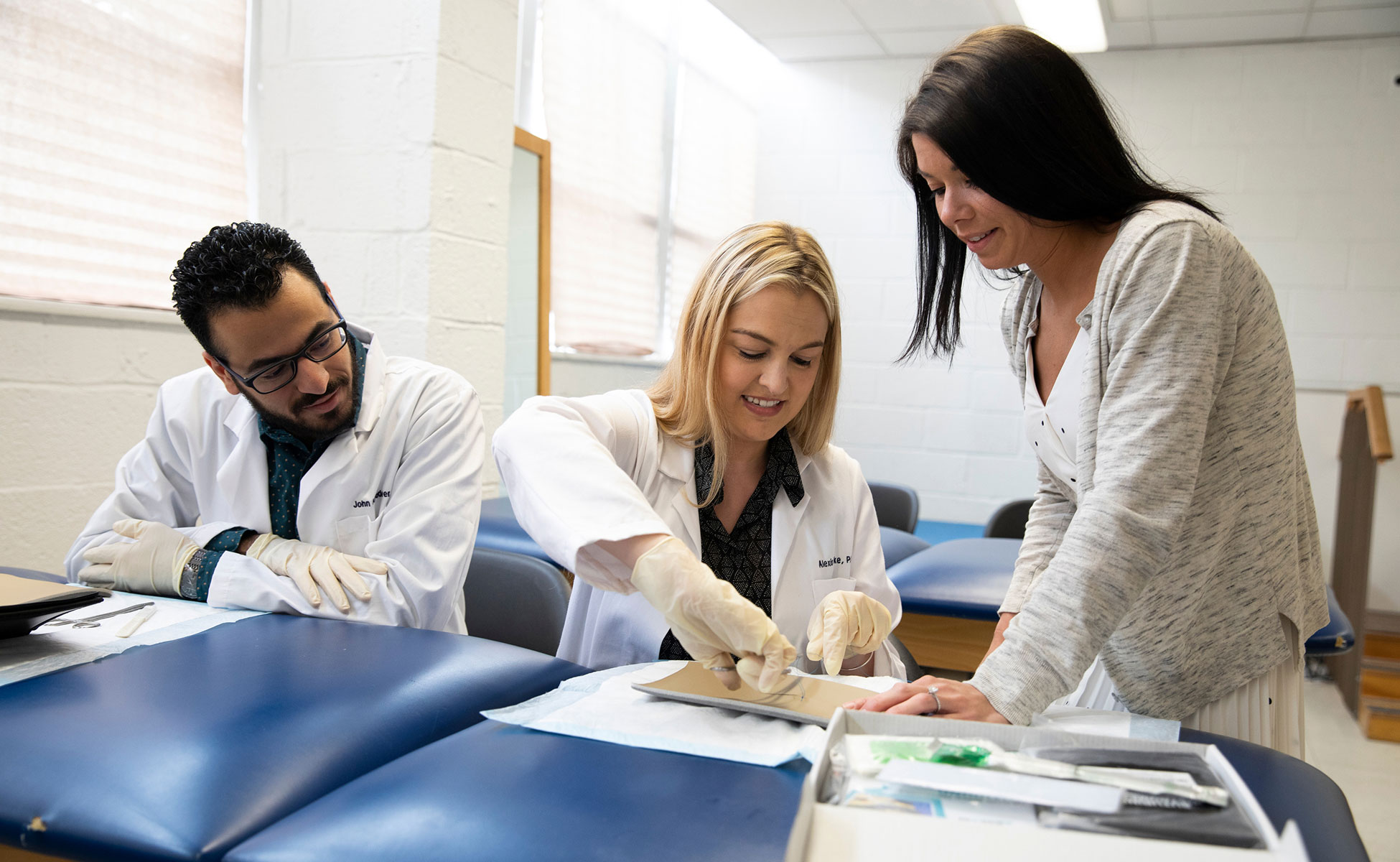The 30 credit CURRICULUM includes the 17 didactic credits in the courses listed below and the 13 advanced placement graduate credits achieved and approved prior to program entry as described under Clinical Prerequisites section of the Admissions Requirements.
Semester I
MPAN 645 - Health Science Epidemiology and Biostatistics (2 Credits | 30 Hours)
Students will develop the knowledge and skills to understand and apply epidemiological methods and BIHNstatistical analysis in the medical and/or public health setting. Students are introduced to the distribution and determinants of health and disease in the human population and the application of this study to the control and prevention of disease. The student will develop basic conceptual and analytical skills in the design and conduct of epidemiologic studies and understand the process of epidemiologic surveillance. In addition, this course will provide students with the basic concepts in biostatistics, such as measures of disease frequency, measures of effect, and statistical significance. Students will become familiar with standard techniques of data collection and analysis, and the content of vital statistics and mass data of the health field.
MPAN 646 - Medical Research Methods and Literature Review (3 Credits | 45 Hours)
Students will gain knowledge and skill in research methodology, experimental design, statistical analysis, and critical evaluation of the medical literature. Students will develop the skills to formulate research questions, develop research protocols, hypotheses, study designs, and their comparative strengths and limitations. Students will gain the knowledge and skills to effectively use and analyze BIHN-statistics in different research design and data analysis, to conduct computerized searches, and to understand, review, and critically analyze medical literature and professional journal articles and its application to clinical practice. Topics include choosing correct statistical methods and study designs in research and practice, descriptive statistics, probability and probability distributions, estimation and hypothesis testing. Ethical issues in research will be discussed, including informed consent and the function of an IRB.
MPAN 653 - PA Master's Project I (1 Credit | 15 Hours)
These courses (MPAN 653-655) are designed as a “capstone” to the program. Students will work with a faculty advisor to formulate a clinical question and perform a literature search on the topic. This will allow an opportunity to demonstrate analytical ability and comprehensive understanding of a subject. The research work will allow the student to conduct a literature review, explore and analyze a problem, and design a study to answer a clinical question. In Master’s Project I, students will learn to formulate a clinical question and conduct a literature search on the topic. They will write an initial draft of what will be a 15-20-page paper.
MPAN 647 - Medical Ethics and Healthcare Policy (3 Credits | 45 Hours)
In seminar format, topics in medical ethics that develop the analytical skills and reflective sensitivity required for responsive, responsible, and productive decision-making between patients and professional. Topics discussed include ethical decisions at both the beginning and the end of life, risk/benefit decision-making in medicine, confidentiality and privacy. Students also discuss a variety of professional practice issues, such as privilege and confidentiality in communicating with patients, political and legal issues, credentialing and licensure, professional liability, and the physician-PA team relationship.
Semester II
MPAN 654 - Master's Project II (1 Credit | 15 Hours)
These courses (MPAN 653-655) are designed as a “capstone” to the program. Students will work with a faculty advisor to formulate a clinical question and perform a literature search on the topic. This will allow an opportunity to demonstrate analytical ability and comprehensive understanding of a subject. The research work will allow the student to conduct a literature review, explore and analyze a problem, and design a study to answer a clinical question. In Master’s Project II, students will concentrate on refining, revising and finalizing their written paper, with the guidance of their faculty advisor. The final, submitted paper should be of a quality suitable for potential publication.
MPAN 642 - Health Care Delivery Systems (3 Credits | 45 Hours)
Introduces students to general concepts of health care delivery and the characteristics and functions of some important delivery systems. Emphasis is placed on decentralized, community-based, and primary care systems, ambulatory care systems, as well as long-term care systems. Financial and ethical issues that challenge today’s system and ways to address them are covered.
MPAN 664 - Evidence Based Medicine (3 Credits | 45 Hours)
This course aims to introduce practitioners to principles of evidence-based practice and policy, practice guidelines, and information utilization for practice modeling. Increasingly, Physician Assistants are presented with new information about recent findings from research and professional consensus statements regarding best practice guidelines. This information pertains to practice assessment, intervention, and the evaluation of outcomes. This course focuses on preparing students to engage in evidence-based practice, providing the skills needed to critically evaluate new information that is available from research findings and professional consensus statements. Furthermore, the course provides skills for integrating this new information into the student’s own, personalized approach to practice.
MPAN 655 - PA Master's Project III (1 Credit | 15 Hours)
These courses (MPAN 653-655) are designed as a “capstone” to the program. Students will work with a faculty advisor to formulate a clinical question and perform a literature search on the topic. This will allow an opportunity to demonstrate analytical ability and comprehensive understanding of a subject. The research work will allow the student to conduct a literature review, explore and analyze a problem, and design a study to answer a clinical question. In Masters Project III, students will present a publishable thesis to their Master’s advisor. The final project should be suitable for presentation at a professional conference.


